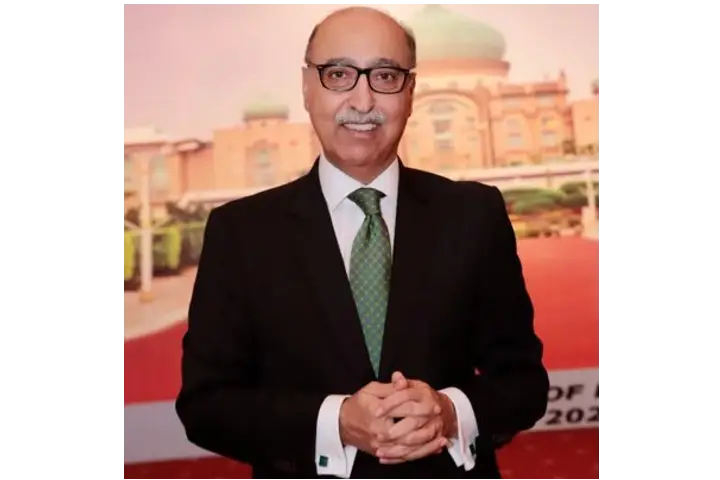At a time when Pakistan’s business tycoon Mian Muhammad Mansha’s statement emphasising the need for Islamabad must build bridges with India to boost trade and economic growth grabbed headlines, former ambassador to India Abdul Basit lashed out saying that that the economic challenges of the South Asian nation were due its own doing.
Lack of governance, corruption, incompetence and nepotism have led to the rising challenges, Basit said, noting that Pakistan has not even built efficient dams to store water.
“Our water is wasted, we cannot say that India has stopped providing water to Pakistan. Under the 1960 Indus Waters Treaty, India has been providing 133 million acre feet of water to us, but we waste much of it because we did not build dams and reservoirs,” Basit said as clamour for easing trade relations with India within the South Asian country is growing.
Notwithstanding Pakistan's crumbling economy, Basit said Islamabad's relation with India has little bearing on the its economy and that the issue of Kashmir continues to remain at the core.
Also read: Pak Opposition parties to use 'all options at disposal' to remove Imran Khan-led govt
Recently, addressing a gathering of business leaders at the Lahore Chambers of Commerce and Industry, Mansha stressed the need to put in place “progressive, market-oriented policies.” He also said that Pakistan which is also hit by the shortage of gas and re-gasified liquefied natural gas (RLNG), could face disastrous consequences if the economy did not improve.
“Pakistan should improve trade relations with India and take a regional approach to economic development. Europe fought two great wars, but ultimately settled for peace and regional development. There is no permanent enmity,” the billionaire businessman said.
The all-important textiles sector is one of the most adversely impacted. According to reports, the country has just enough stocks till this month.
Last year, the Pakistan Textile Exporters Association (PTEA) had underlined the need for Islamabad to allow the cross-border import of cotton yarn from India to ensure continuity in export growth.
Also read: Daring Baloch rebels target Pakistan's Turbat naval base marking fifth day of fighting with troops
Within a day of opening up imports of cotton from India, Pakistan Prime Minister Imran Khan abruptly reimposed the ban in 2021.
Since the Pulwama attack, relations between the two countries nosedived and all trade activities had come to a halt after India decided to revoke Article 370 which accorded special status to Jammu and Kashmir.
Pakistan based newspaper the Dawn in an article in 2019 said that while Bangladesh sees its future in human development and economic growth, for Pakistan human development is a distant second.
“The bulk of national energies remain focused upon check-mating India. Relations with Afghanistan and Iran are therefore troubled; Pakistan accuses both of being excessively close to India,” it added.




















